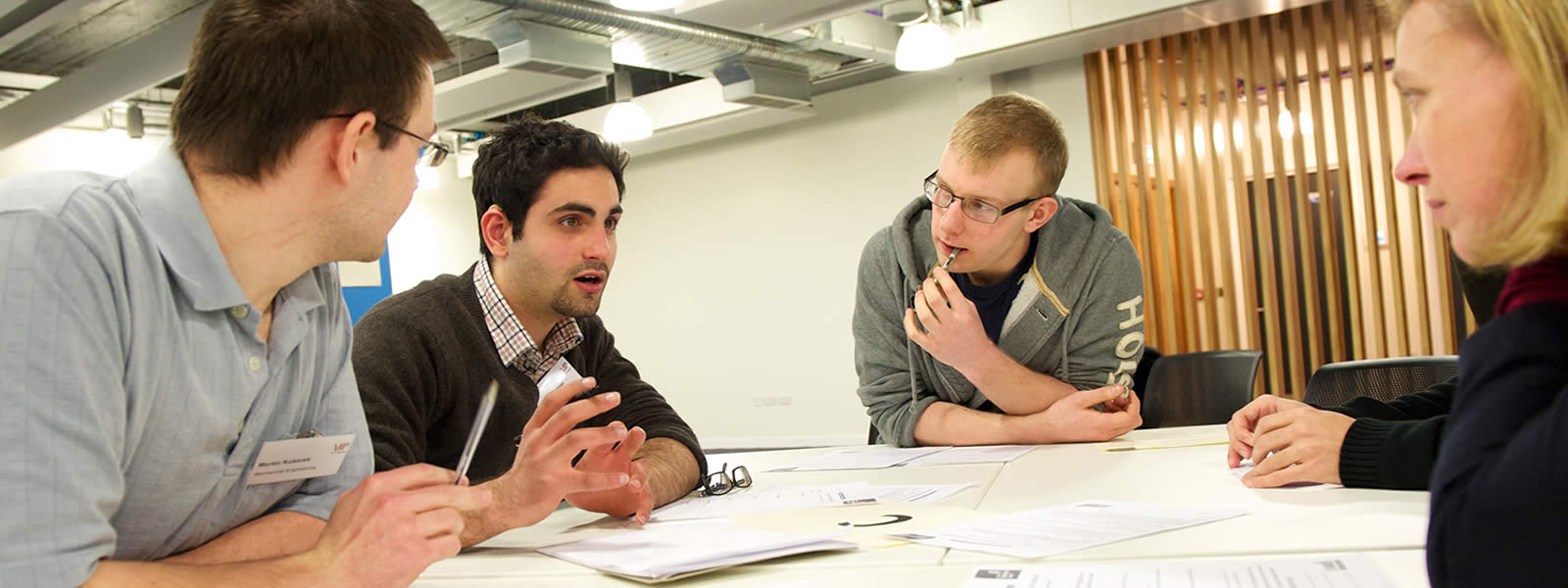Is this course right for me?
Target Audience: University of Strathclyde Academic/Research Staff
This fourth workshop is part of a series of workshops exploring ML/AI opportunities for collaboration with university colleagues. Prior knowledge of the topic is not required.
The programme:
1:05 – 1:10 Welcome Professor Sergey Kitaev (Faculty of Science Associate Dean for Research)
1:10 – 1:40 Industrial Informatics - Advanced Digital Technologies Supporting Operational Intelligence and Decision Making
Dr Graeme West (EEE, Faculty of Engineering)
1:40 – 1:55 Machine learning for multi-parameter optimisation for a zero-field optically pumped magnetometer
Dr Rachel Dawson (Physics, Faculty of Science)
1:55 – 2:10 Only a few Photons - Deep-learning Enhanced Super-resolved Time-resolved Imaging
Dr David Li (Department of Biomedical Engineering, Faculty of Engineering)
2:10 – 2:20 You and Your Research - LLMs Perspective (pre-recorded presentation)
Dr Mohamed Elawady (Computer and Information Sciences, Faculty of Science)
2:20 – 2:35 Leveraging ChatGPT in Computer Science
Piyumi Perera (Computer and Information Sciences, Faculty of Science)
2:35 – 2:55 Round up and discussion
The abstracts for the talks are available below.
Speaker: Dr Graeme West (EEE, Faculty of Engineering)
Title: Industrial Informatics - Advanced Digital Technologies Supporting Operational Intelligence and Decision Making
Abstract: This talk will cover the successful application of digital technologies, such as AI and Machine Learning to the continued and extended operation of nuclear power plants. Challenges associated with delivering intelligent decision support in a regulated environment will be introduced and case studies provided which illustrate successful deployment of these techniques to provide benefit to industry. Some of this work was conducted in partnership with the Alan Turing Institute, the UK’s national institute for Data Science and Artificial Intelligence. As Strathclyde is part of the Turing University Network, and the speaker is the Turing University Liaison (Academic), the latter part of the talk will highlight opportunities for engagement with the Alan Turing Institute.
Speaker: Dr Rachel Dawson (Physics, Faculty of Science)
Title: Machine learning for multi-parameter optimisation for a zero-field optically pumped magnetometer
Abstract: The measurement of magnetic fields in the human body is having a significant impact on healthcare applications, with zero-field optically pumped magnetometers (OPMs) demonstrating a suitable signal resolution. Here we present a portable caesium zero-field OPM for medical applications where the implementation of multiple automated machine learning strategies increased sensor performance by a factor of five.
Speaker: Dr David Li (Department of Biomedical Engineering, Faculty of Engineering)
Title: Only a few Photons - Deep-learning Enhanced Super-resolved Time-resolved Imaging
Abstract: Super-resolved imaging techniques are essential to reveal essential biological processes such as biomolecular interactions that are related to disease progression or treatment. However, most live-cell or in-vivo imaging applications require real-time acquisition and processing. In this talk, I will give two examples of how deep learning can boost our new BBSRC imaging facility.
Speaker: Dr Mohamed Elawady (Department of Computer and Information Sciences, Faculty of Science)
Title: You and Your Research - LLMs Perspective
Abstract: Learn how large language models can enhance your research, helping you find, analyse, and create knowledge more effectively than ever before. Explore the progressive relationship between researchers and LLMs, and how it's shaping the future of scientific discovery.
Speaker: Piyumi Perera (PhD student, Department of Computer and Information Sciences, Faculty of Science)
Title: Leveraging ChatGPT in Computer Science
Abstract - Discover the revolutionary possibilities of ChatGPT in computer science field by understanding its unique capabilities such as code assistance, novel algorithm solution generation and its versatile application in various research domains. Explore how these capabilities of ChatGPT can reshape the computer science field while also acknowledging the challenges and ethical considerations associated with this advanced technology.
Delivered By: Faculty of Science and Faculty of Engineering
